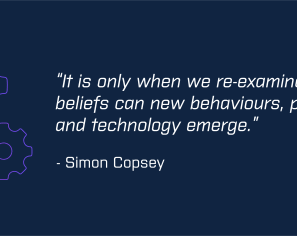May 27, 2016 | Software Consultancy
People make mistakes. People can improve. People need to be told of their mistakes. Surprisingly project managers are people too… I know… in some cases it is really hard to believe it; and then they can improve too! Shocking! I have more than 15 years working in IT, occupying different roles from software development to project management in three different countries. I’ve seen really bad project managers and some really good project managers; Yes, they DO exist!

With this background, I noticed common mistakes from the bad project managers regardless of organisation size, context, or level of experience. Sometimes, even good project managers can fall into the temptation to behave as the bad ones – everybody has bad days.
In order to improve, we need to understand our mistakes, and then find a solution for them. That’s the reason of this post, to present to everybody the Seven Deadly Sins of Project Managers. In this blog post I will describe the typical sins I have seen Project Managers fall into before I started working for OpenCredo. Quite often all the sins can be linked to each other in a non-virtuous circle, or become a consequence of one another.
All of us have seen in our careers a Project Manager (PM from now) constantly saying “yes” to the sponsors, no matter what the sponsors were asking. To be honest, I’ve seen this behaviour most of the time on contractors covering 1-2 months till the permanent project manager arrives in the company. Having been that new arrival on several occasions I know exactly how bad that position can be.
As a consequence of saying “yes” to the sponsors, the PM tends to say “no” to the developers, ignoring their concerns about the impact on the platform/product/project implementing those new changes. This is due to the fact that the PM is only focused on the project without questioning/enquiring what is the place of the project in the company plan and company goals. In doing so, the PM is not trying to understand the big picture, which makes it difficult to efficiently improve and deliver more value to the company.
Several times I have seen the PM adding new additional functionality out of the scope of the Business Case, most of the time to please the sponsors. Often, the reasoning behind this is: “if I keep the sponsor happy then I keep my job”. This causes lots of problems with the budget and the schedule within a waterfall project, as most of the time the PM (one of the bad ones) doesn’t consider those impacts. This behaviour slows delivery, jeopardising the project completion within time and budget. This is also a sign of a project without a proper start; the build of sensible requirements in advance is key to plan and estimate the cost of the project.
This misbehaviour is similar to the PM approaching a developer on an Agile project to try to convince the developer to add / bend the acceptance criteria on a ticket already in progress.
What does usually happen when out of scope functionality is added? Yes, you guessed right. The timeline becomes tighter, and it’s really unlikely that the project would be finished on time. What would be the solution of our sinner PM? Yes, you guessed right again! Our sinner PM would ask the team to stay late, of course promising that it’s only for a short period (the whole duration of the project) and the most annoying thing is that the PM often goes home first!
Another of the common mistakes is regarding the quality of reporting. I have seen several times “experienced” PMs spending lot of time manipulating (redacting they would say) the reports, providing subjective and/or inaccurate information to mask a problem within the project. Too much effort and time wasted on concealing the information, as a better use of their time would have been discussing and helping the team to deliver the project.
I have seen this sin several times, quite often, as a result of a Portfolio Monthly Meeting or a Company Project Update Meeting. Our sinner PM has seen an amazing feature that the company is doing on another project. So, our PM would try to add that feature to the project to have it as well, falling into the trap of Greed. The same could happen if another project within the company has a larger budget or feature set. The Envy will make our PM to try to transform the project they are working on, to make it to become the biggest and most important.
Also, after those meetings our PM can try to copy the methods or ways of working of another PM with a high recognition within the company, often without questioning whether it is the appropriate methodology or way of working for the project.
When the cunning plan of our PM is beginning to fall apart the anger comes out. Blaming others for the project failure or the delays in the project delivery, without questioning whether the cunning plan wasn’t actually that cunning. Depending on the PM we can even see them blaming others (devs, BA, QA…) and quite often shouting at everybody, even shouting at the Sponsors! In doing so, the PM is damaging the company’s trust on the delivery team (and on the PM too!) contributing on the division between IT and Business rather than approaching them.
It is quite frustrating when you try to discuss with the PM about how to improve the process or things that are not right and the only answer you get is: “I’ve been doing this for more than twenty years! I’m sure I’m doing it right!” Some PMs are unwilling to change or to consider they are wrong. They don’t want to listen to someone who is younger than them or in a different role than theirs, and doing that they are missing a valuable feedback to improve.
This is particularly problematic where the PM is put in charge of projects with different context (ie. a telephony migration project needs to be handled differently than a web development project) or methodology (ie. waterfall vs Agile).
This is for me the biggest sin for PMs, and I could probably write hundreds and hundreds of examples of lazy PMs. Following what I described for the sin Lust, I have seen PMs sending the same report as the previous week, only changing the date, at 8.59am. The busy sponsors only check the reports arriving late and not that one arriving on time, unless there is anything red, but our clever and lazy PM never uses the red colour on the weekly reports.
Also, another sign of being in the presence of one of the lazy PMs is to constantly receive mails from them, and rarely a call or a face-to-face conversation, because the lazy PMs don’t want to move too much and go to the team to discuss about the project status or discuss about how they can help the team. This causes miscommunication and uncertainty within the team.
The whole list of misbehaviours is not exclusive to Project Managers, anybody can be tempted to fall into those sins, but I do believe the PM’s behaviour is more noticeable, for the good and for the bad. I have worked and seen really amazing PMs as well, so keep the faith, not everything is lost when we work with a PM. I will explain my views on what the PMs should focus to improve and how the PMs can help the team to achieve the projects.
Stay tuned for the next blog entry!
Please, do not hesitate to get in touch if you have any questions or would like to share your views about Project Management. You can find me on twitter @Mind_of_AC, and via email at antonio.cobo@opencredo.com
This blog is written exclusively by the OpenCredo team. We do not accept external contributions.

Agile India 2022 – Systems Thinking for Happy Staff and Elated Customers
Watch Simon Copsey’s talk from the Agile India Conference on “Systems Thinking for Happy Staff and Elated Customers.”
Lean-Agile Delivery & Coaching Network and Digital Transformation Meetup
Watch Simon Copsey’s talk from the Lean-Agile Delivery & Coaching Network and Digital Transformation Meetup on “Seeing Clearly in Complexity” where he explores the Current…
When Your Product Teams Should Aim to be Inefficient – Part 2
Many businesses advocate for efficiency, but this is not always the right goal. In part one of this article, we explored how product teams can…